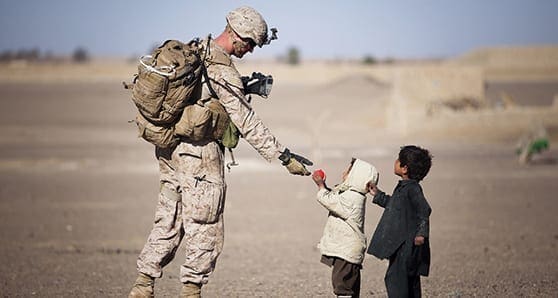 A study of history exposes many mistakes mankind has made. But we also see many great successes. What creates this difference?
A study of history exposes many mistakes mankind has made. But we also see many great successes. What creates this difference?
At the core of each person, there are guiding principles. We innately know that love, kindness, humility, truth and compassion are paramount, and our ability to embrace these ideals impacts the direction of the world around us.
We can also choose to ignore them and focus on baser instincts.
When we look back over the 19th and 20th centuries, we see that many people embraced a strong belief in conquest. They held that it was their destiny to conquer and develop the world. They idealized industrialization and militarization.
Global development is not a bad thing in. When we look around our homes and public buildings, we see it’s helped to create a very comfortable way of life for millions of people.
The problem comes when we forget that there are deeper and more profound values. Jesus asked, “For what shall it profit a man, if he gain the whole world and lose his own soul?”
How ironic that many of those who pillaged the world did so in the name of this same Jesus.
It’s not difficult to learn to manipulate situations in the short term. When we do so without taking the time to reflect on deeper truths, however, we cause unnecessary suffering.
All great religions and philosophies stress the importance of love. To love means to have respect and compassion, to be able to forgive. In loving, we need to seek truth and live with integrity. We value ourselves and we value our neighbours.
What’s interesting is that living this way is also the path to true greatness. The leaders we most admire are those who have learned to exemplify love. We may praise those who led conquests, but the ones we hold in highest esteem are those who embraced compassion and forgiveness.
It’s not difficult to look at history and see the mistakes that were made. We’re still paying the price for the crimes of colonialism. We see economic hardship, political instability, rampant racism, wars and refugees in many former colonies. We also see people dealing with the intergenerational trauma that resulted from these conquests.
It’s also not difficult to see what greatness really is. Common missionaries exposed the horrendous exploitation of the Congo Free State by King Leopold II of Belgium. Mohandas Gandhi led a peaceful revolution that caused the world’s most powerful empire to begin to crumble. He also inspired Martin Luther King Jr. to challenge legalized racism in the United States.
Though weapons are necessary from time to time, universal wisdom teaches us that they can only be used in extreme circumstances. The same goes for prisons. Demonizing others doesn’t make us safe. We can only change the world for the better if we embrace our higher ideals.
When we love and respect ourselves and others, we see that there really are ways where everyone can thrive. There’s more than enough good in this world for everyone and every person has the potential for greatness.
This is why I’ve devoted my career to education. By creating an atmosphere of mutual respect, I’m can draw out the greatness in those around me. These are not just ideals, they’re guiding principles that lead to success.
What’s true in the classroom is true in the world around us. Whether we’re leading teams of thousands of people or working independently, when we hold fast to the higher human principles, we will overcome all obstacles and live to our greatest potential.
Gerry Chidiac is an award-winning high school teacher specializing in languages, genocide studies and work with at-risk students.
The views, opinions and positions expressed by columnists and contributors are the author’s alone. They do not inherently or expressly reflect the views, opinions and/or positions of our publication.


